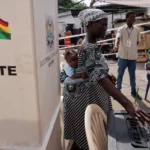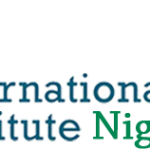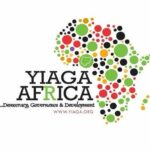Hardly could any other intervention in the country’s political turf been more timely than the 20th Daily Trust Annual Dialogue which held last Thursday at the Nigerian Air Force Conference Centre in Abuja. With its theme as ‘Interrogating the 2023 Presidential Agenda’, it offered the country a welcome assault on the wide range of campaign promises – being the very planks on which candidates contesting for various leadership positions – especially the presidency, hinge their successes upon. The forum did not disappoint with respect to dissecting the various aspects of the promises by presidential candidates on the grounds of integrity, appeal, and timeliness of such. And at the end of the day, a consensus of the forum was a vote of no confidence on the agenda of the presidential candidates especially from the perspective of their campaign promises.
Campaign promises are notionally offerings made by contestants to public offices in which they provide a foretaste of what constituents expect to gain by electing them into office. At the best of times and in country after country, the issue of campaign promises by politicians has always been a matter of ‘caveat emptor’, which demands that the voter should beware of such promises as any of them could be a poisoned chalice, or an offer to unrealistic Eldorado or even a clear wait for Godot which may be endless. The bottom line remains what the voter should make of the campaign promises. In the Nigerian political terrain, campaign promises have become matters that need to be interrogated beyond the utterances by the candidates.
This is where the build up to the forthcoming presidential polls of February and March this year, provides interesting insights with respect to the twists and turns in the flow of campaign promises by the contestants – especially the leading ones. Just as the forum noted correctly, whereas the contestants have been clamouring to outdo each other in terms of soap box pugilism, not only does the cross section of the voting citizenry remain mostly in the dark with respect to specifics of what to expect from the contestants. This is the basis for a gnawing feeling that the country is being taken for a ride by the miasma associated with the mainstream of the promises. Not a few Nigerians actually think that in the final analysis, the citizenry may be going into the polls literally blindfolded. And the best candidates that should serve as change agents may not emerge. Just as well, nothing would have changed with the 2023 polls – with all its high vaunting promise.
As things stand, the voting process may mimic a situation like a visit by blind men to see the elephant. He that touched the body described the animal as a wall, while the one that wrapped his hands around one of the legs called it a tree, and the other that held the tail, celebrated the beast as a rope! This is the state of confusion which Nigerians across the country are being pushed into with respect to the coming polls, courtesy of the inchoate state of campaign promises which sound laudable but offer limited scope for citizens to buy into.
So far the thrust of campaign promises has featured three main dimensions. In one vein is the resort to didactic and empirical submissions in respect of the burning issues of the day. This has presented the proponents as the ones with a grounding on the way out of the country’s deluge of socio-economic challenges, and which shall provide a bitter welcome for any incoming administration that succeeds the present one.
Another campaign thrust is that which derives from a sense of entitlement that runs from the federal to the state level and seeks to uphold prearranged succession plans that pay scant premium to the proclivities and sensitivities of the wider society. This is so even when it remains crystal clear that an anointed candidate constitutes a mismatch with the office aspired to, and may be an unmitigated disaster waiting to happen if allowed ascent into leadership. Yet there is the other which builds on a personal ego trip to achieve a purely parochial ambition of self actualisation, and not the altruism that thrives on public interest.
Interestingly, these campaign thrusts are thriving on the simple condition that the citizenry remain subjected to relative dis-information, with majority of them compelled to vote uninformed, for candidates and political goals which they know little or nothing about. It is in this respect that the expected intervention of at least two dispensations in the build up to the polls, remains welcome, given the impetus for rectitude which they are expected to offer the polls exercise. The first of these is the Biometric Voter Accreditation System (BVAS) device which has been designated for use by the INEC for administering the polls exercise. This, with its complicated voter identification protocol is expected to weed out the most critical electoral sin of voter identity theft, (vote juggling and buying at the voting point). Courtesy of the BVAS, there is hope that the INEC claim that every vote at the polls shall count, will be more than lip service, even if there may be operational slips here and there.
Another is the ongoing currency swap exercise which is akin to a stab in the back for perpetrators of the age-long vote-for-cash syndrome. It is not surprising that this singular measure by the Central Bank of Nigeria Bank of Nigeria is raising so much dust for the wrong reasons, even in some of the most powerful circles across the country.
With the most problematic syndromes of voter identity theft and money-for-cash now substantially caged, this is a call on the candidates to make themselves more convincing on their promises. Nigerians need to know where an incoming leader will take the country to. The consideration shifts to which model of administration comes after the Buhari era. Shall it be one of a progressive leadership and a retrogressive followership, or a retrogressive leadership and a progressive followership, or a retrogressive leadership and a retrogressive followership, or even the best model of progressive leadership and progressive followership.
By virtue of its status as the giant of Africa and a leading nation of the world, Nigeria’s citizenry have always offered any leader the most progressive followership. Hence the country’s present challenge is to facilitate a most progressive leadership community that will synchronise with the followership and take the country to the next level.
The starting point here is for the leaders to point the way so that the people will follow with conviction.

 Join Daily Trust WhatsApp Community For Quick Access To News and Happenings Around You.
Join Daily Trust WhatsApp Community For Quick Access To News and Happenings Around You.


